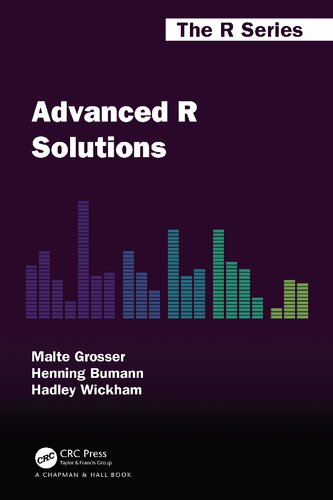

Most ebook files are in PDF format, so you can easily read them using various software such as Foxit Reader or directly on the Google Chrome browser.
Some ebook files are released by publishers in other formats such as .awz, .mobi, .epub, .fb2, etc. You may need to install specific software to read these formats on mobile/PC, such as Calibre.
Please read the tutorial at this link: https://ebookbell.com/faq
We offer FREE conversion to the popular formats you request; however, this may take some time. Therefore, right after payment, please email us, and we will try to provide the service as quickly as possible.
For some exceptional file formats or broken links (if any), please refrain from opening any disputes. Instead, email us first, and we will try to assist within a maximum of 6 hours.
EbookBell Team

4.7
66 reviews"I learned a lot working through their solutions -- it's a great way to broaden and deepen your understanding of R. (I should probably go through it again...)" - Greg Wilson, RStudio
This book offers solutions to all 284 exercises in Advanced R, Second Edition. All the solutions have been carefully documented and made to be as clear and accessible as possible. Working through the exercises and their solutions will give you a deeper understanding of a variety of programming challenges, many of which are relevant to everyday work. This will expand your set of tools on a technical and conceptual level. You will be able to transfer many of the specific programming schemes directly and will discover far more elegant solutions to everyday problems.
Features:
When R creates copies, and how it affects memory usage and code performance; Everything you could ever want to know about functions; The differences between calling and exiting handlers; How to employ functional programming to solve modular tasks; The motivation, mechanics, usage, and limitations of R's highly pragmatic S3 OO system; The R6 OO system, which is more like OO programming in other languages; The rules that R uses to parse and evaluate expressions; How to use metaprogramming to generate HTML or LaTeX with elegant R code; How to identify and resolve performance bottlenecks